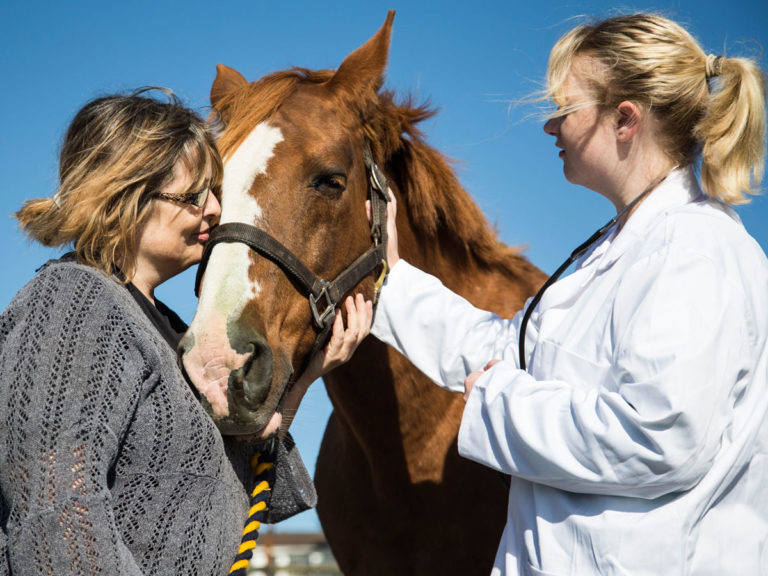In this electronic age, it seems that recordkeeping should be far easier and less cluttered. But that doesn’t mean there is any less work in sorting through volumes of bills, invoices and receipts, and in keeping concise medical records. As a practitioner motivated to run an efficient practice, it helps you to know just what records you should keep, and for how long.

Why Keep Records?
Milton C. Toby, JD, recognizes the extent of the dilemma on what to keep. “There is not a one-size-fits-all solution for dealing with the various records of a veterinary practice,” he noted. “When deciding about document management and retention, it’s best to err on the side of caution. It’s always better to have records and not need them, than to need them and not have them.”
Documents for a veterinary practice include patient medical records, client billing records, payroll information, employee files, insurance policies, continuing education records, mortgage or lease paperwork for the practice grounds/facility, equipment warranties, vehicle records, business-related estate planning documents, Drug Enforcement Administration logs for controlled substances and tax records, to name a few.
Besides enabling efficient running and evaluation of your business, records must be kept to comply with both medical and legal dictates. It is best to consult your accountant or CPA as to what specifically needs retaining to substantiate business income and expenses and also to protect yourself against a tax audit.
Another reason to keep accurate accounting records is to enable you to collect payment from clients when credit has been extended.
Medical Records
The intent of careful medical recordkeeping is to enable you to provide optimal care to your patients. Don’t rely on memory or scribbled notes in the margin of your Day-Timer or on your phone to get you through remembering details about the diagnostic workup and decision-making process or for making future decisions about a patient’s treatment. And such cursory notes aren’t suitable for getting you through others’ scrutiny of a horse’s medical record. Toby stressed, “There is no substitute for complete and accurate records when defending a lawsuit, or for that matter, surviving an IRS audit.”
Complete medical records, including imaging documentation, not only outline your standard of care for each case, but facilitate communication of salient facts about a case to other veterinarians. This may not only be appropriate between multiple practitioners within the same clinic, it is important in the event that a horse is referred to another veterinary practice. A written record describes each specific equine case and for practical reasons is kept as a SOAP format—subjective, objective, assessment and plan of treatment. It is also important to record relevant specifics of client communication, including client refusal for recommended treatment or notations about client non-compliance.

With regard to medical record retention, periodically consult your Board of Veterinary Examiners as to specific regulations for your state. “Practitioners should keep patient records as long as necessary,” said Toby. “Just how long that is depends on state law and the facts and circumstances of each case.” He also encouraged veterinarians to consult an attorney familiar with veterinary practice state laws and to check with malpractice insurance carriers for recommendations.
Most states require retention of medical records for three to five years following the date of the last treatment by the veterinarian or veterinary practice. The exceptions, Connecticut and Texas, require record retention for seven years, although upon death of a patient, Connecticut shortens that to three years.
In addition, you’ll want to protect and defend yourself against malpractice litigation in the event of injury or death of a horse. In most states horses are considered personal property—the statute of limitations of such claims typically runs four years. Toby said, “The fact that states have animal protection and welfare laws puts animals in a ‘special’ class of property by imposing obligations on animal owners to provide minimum care. One effect of the property status of animals is that courts are reluctant (and may be prohibited by state law) from awarding anything beyond economic damages for harm to an animal. These economic damages generally are limited to replacement value and costs for veterinary care associated with the injury and seldom include damages for pain and suffering or other non-economic damages. However, this may be changing as courts recognize that losing an animal is different than losing a stereo.”
If a person incurs an injury when present while you work on a horse in your care, or a staff member is injured while caring for a horse that has come to your clinic, you’ll want to confer with your attorney as to the exact statute of limitations for both malpractice and negligence cases. Insurance documents should be kept in a safe place and retained until they have expired or are no longer relevant.
IRS Guidelines
A paper trail for financial accounting of your practice is important to comply with federal, state and county tax requirements. The more organized you keep your income and expense records, the less work there’ll be for your accountant/CPA in preparing your tax returns. This ends up saving you money in the long run. The more promptly you attend to organizing your bills, receipts and associated paperwork, the more seamless the process of tax preparation will be.
“Hiring a professional to organize a practice’s records is a must,” urged Toby. “A CPA who has experience working with veterinary practices already knows what records to keep and how to organize the files for maximum efficiency, both on a day-to-day basis and to make tax time easier. I recommend using a CPA who can represent the practice before the IRS in case the practice is audited. One of the most consistent results in tax court cases is that clients who represent themselves lose. The real question for a practice owner is how much his or her time is worth to also be a bookkeeper as compared to the cost of hiring a professional to do the work.”
Careful bookkeeping also backs up your tax reports and filings. The IRS describes “supporting documents” of business transactions to include sales slips, paid bills, invoices, gross receipts of business income, deposit slips, canceled checks and/or electronic fund transfers, and credit card statements. Besides these documents, also keep records of employee wage statements, receipts on purchase and sale of business equipment and assets, a general ledger of all assets, liabilities, tax payments and refunds.

Recommendations are to update your bookkeeping tasks at least monthly rather than having to face an overwhelming, exhaustive and stressful chore of going through everything in one marathon event at the end of the year.
The length of time required to hold supportive documents that outline income and expenses for your business varies. The recommendations, listed in an IRS publication (http://www.irs.gov/publications/p583/ar02.html#en_US_2011_publink1000253160), are as follows:
Referring to these guidelines should help you decide just how long you’ll need to store your accounting paper and electronic documentation. The IRS will provide access to copies of previously filed tax returns and attachments if you file a request (http://www.irs.gov/pub/irs-pdf/f4506.pdf). The IRS also recommended, “Employers who use payroll service providers should ask the provider if it has a fiduciary bond in place. The bond could protect the employer in the event of default by the payroll service provider.”

How Best to Store Records
Some people never throw out a scrap of paper and tend to hold onto receipts for decades, which is an entirely unnecessary strategy taking up a huge amount of space. By contrast, others don’t keep a thing or have everything scattered haphazardly here and there or nowhere at all, and none of it with any organization. This can get them into big trouble down the road. You probably know how your tendencies run; if you are on either end of the spectrum, you might want to rely on a professional bookkeeper to help you accomplish this task as efficiently as possible.
“Some records—patient files, for example—should be easily accessible for efficient clinic operation, but there is always tension between accessibility and safe storage,” said Toby. “Rows of color-coded file folders stored on shelves are easy to get to, but are unprotected from fire or a natural disaster.”

As unpredictable weather events become more common, another feature of recordkeeping includes protection from natural disasters. He continued, “Sprinkler systems might reduce the fire threat, but increase the chance of water damage to exposed files. Inert, gas-based fire suppressant systems solve the water damage problem, but are expensive. Storing files in fire-resistant cabinets might be practical if the number of files is relatively small.”
None of these strategies is likely to provide safe storage in tornado- or hurricane-affected areas.
“It’s a balancing act,” Toby noted, suggesting, “In general, storage of frequently needed files should be as convenient as possible, with off-site backups. Material that isn’t needed on a frequent basis should be stored off-site in a safe deposit box.”
Photographing and videotaping relevant parts of your business helps ensure insurance and casualty loss coverage of market value on tangible items.
One method of condensing materials to be stored is to convert them from paper to electronic media.
“Making a switch from paper files to electronic records can be time consuming if thousands of pieces of paper must be scanned and archived, but there are several attractive things about electronic records—they don’t take up much space, they can be readily accessed, and it’s easy to make multiple copies for storage at the clinic and off site,” said Toby.
“It isn’t good enough to rely on backup copies of files on the office computer because hard drives crash all the time,” he noted. “Files should be backed up in the office, preferably on a separate hard drive, with additional copies stored somewhere else. Getting into the habit of backing everything up on a regular basis—maybe at the end of every week—is sound policy.”
In addition, he recommended, “There are different ways to manage off-site backups: Various companies offer automatic backup services while other companies allow users to manually perform backups. Or digital copies can be archived on portable hard drives, flash drives, or other media and physically stored in a safe place.”
Toby emphasized, “Developing a practice of regular backups, whether manual or automatic, is more important than the method.”
Take-Home Message
The practical business of keeping documentation of financials, insurance papers, purchases and acquisitions, employee information and medical records can be daunting for a busy equine practice. Electronic backups help compress storage requirements and allow for off-site backup.
It is important to know the specifics of governmental dictates for document retention. Consult with your CPA, legal counsel and veterinary state board to help you comply with what specifically needs to be kept and for how long.








